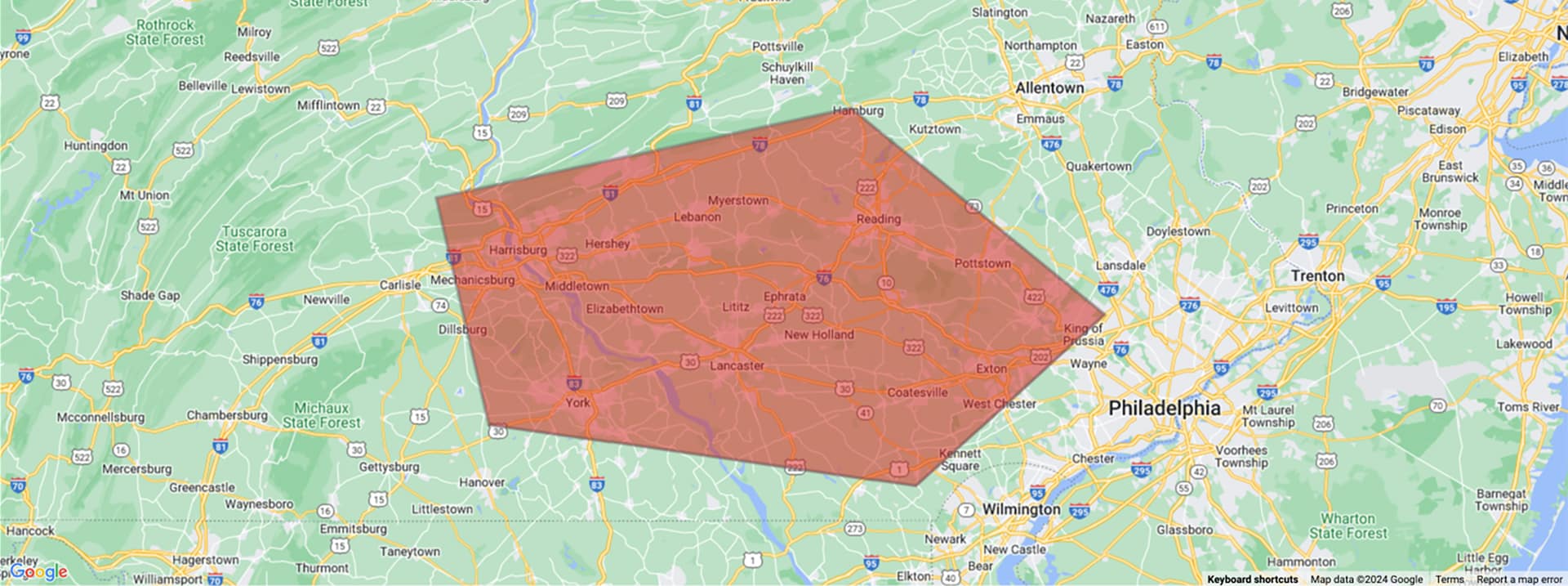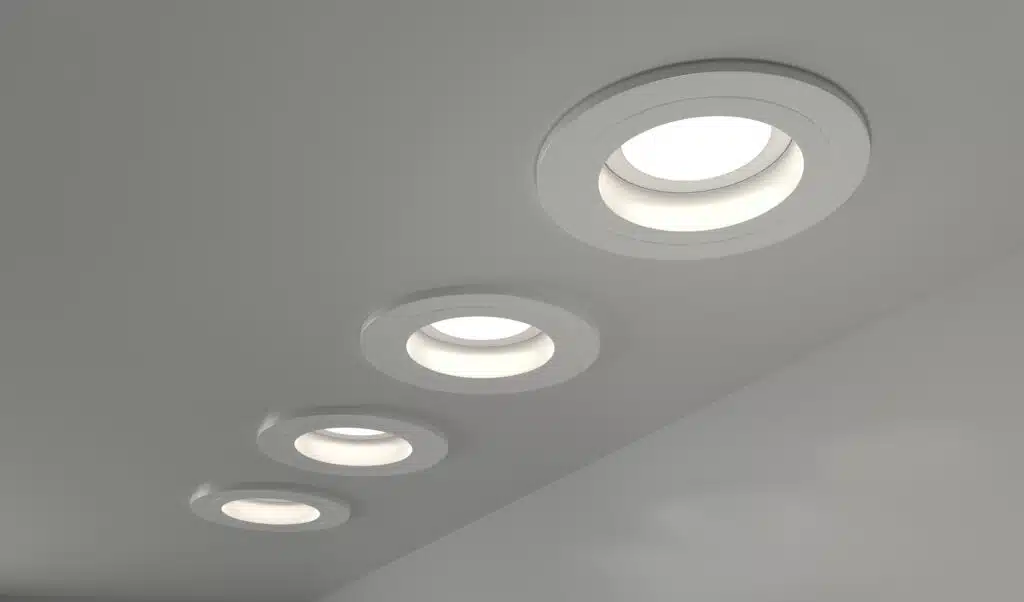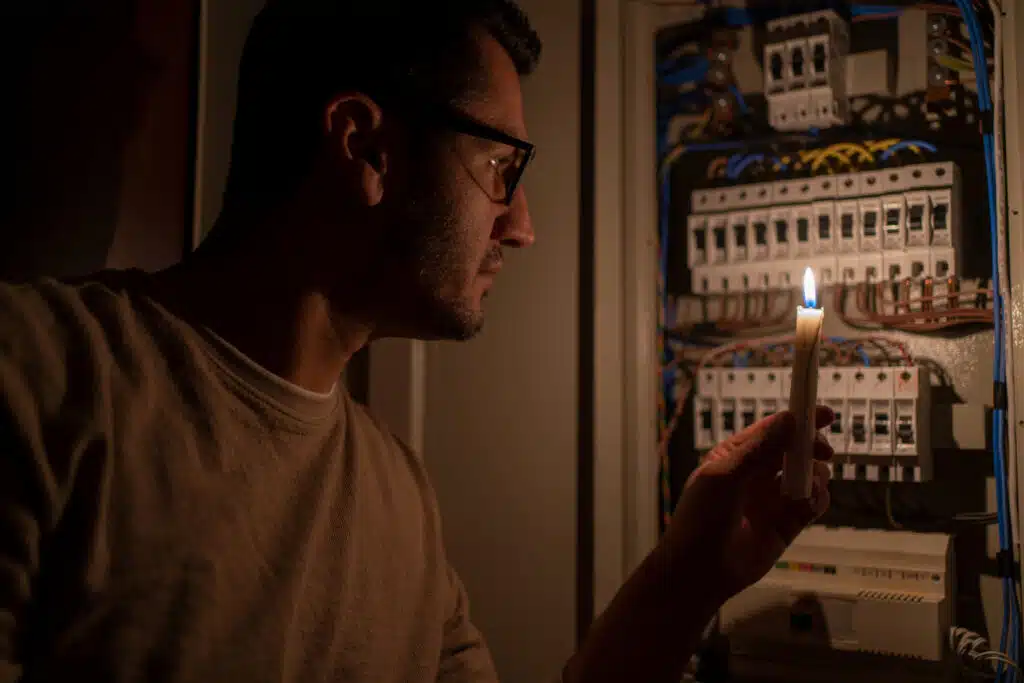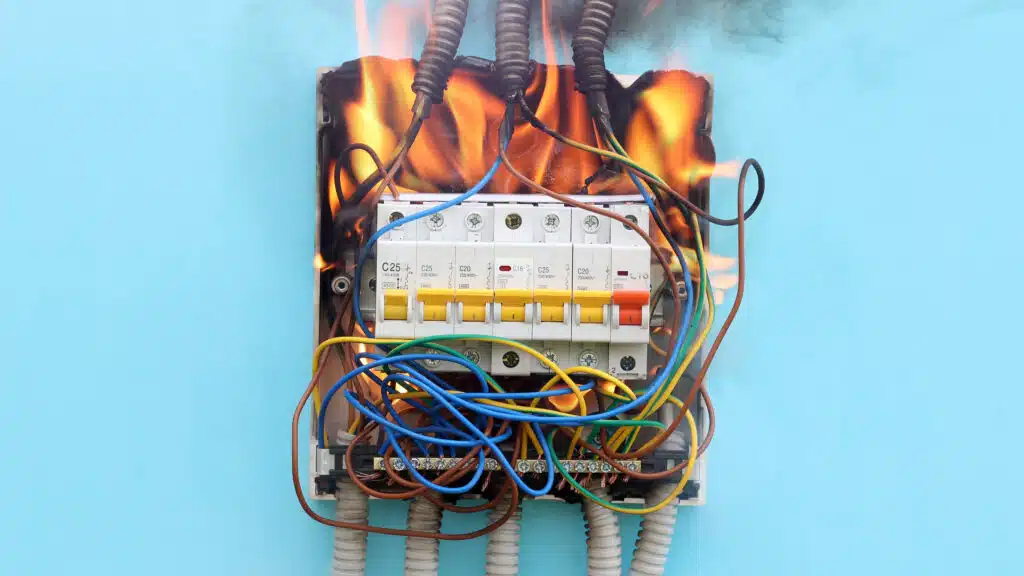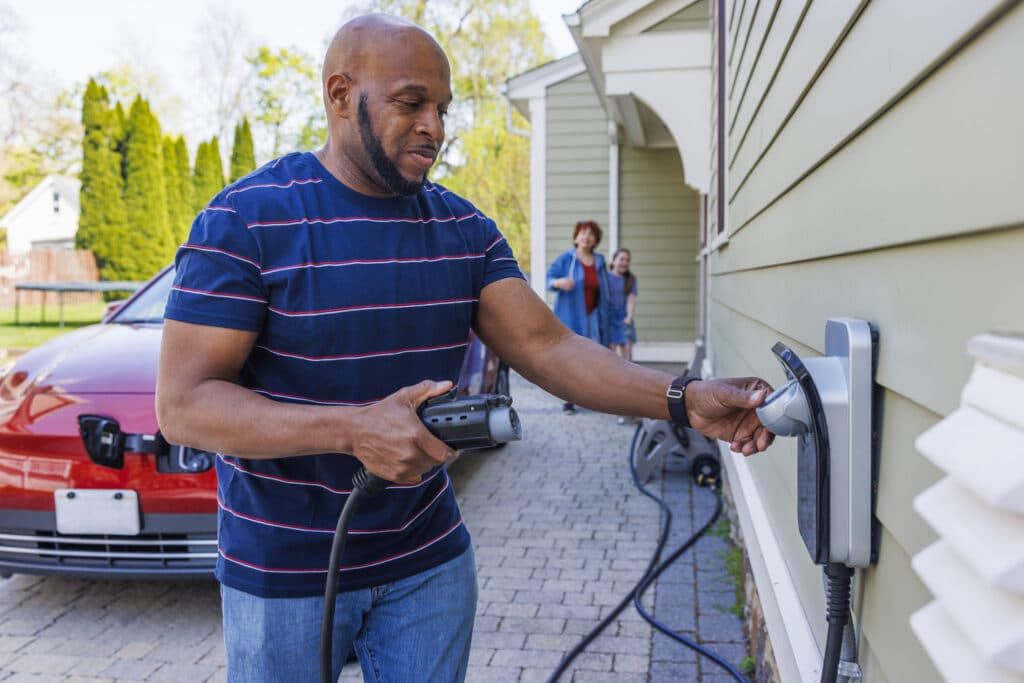Electrical safety checks for older homes are crucial to ensure your home’s wiring and electrical systems are up to modern safety standards. These checks involve a thorough inspection of wiring, outlets, and electrical panels to prevent hazards like fires, shocks, and power surges. If you notice flickering lights, frequent circuit breaker trips, or outdated wiring, it’s time for an electrical safety check. Regular checks can save you from costly repairs, increase home value, and give you peace of mind knowing your home is safe. Schedule a check today to protect your home and loved ones.
Is your home as safe as it could be? If your house is on the older side, there’s a chance that its electrical system might not be up to today’s standards. Electrical safety checks are essential, especially in older homes, to ensure everything is running smoothly and safely.
Over time, wiring can wear out, and problems can arise without you even knowing it. In this blog, we’ll dive into why these checks are so important, what they involve, and how they can protect your home and loved ones.
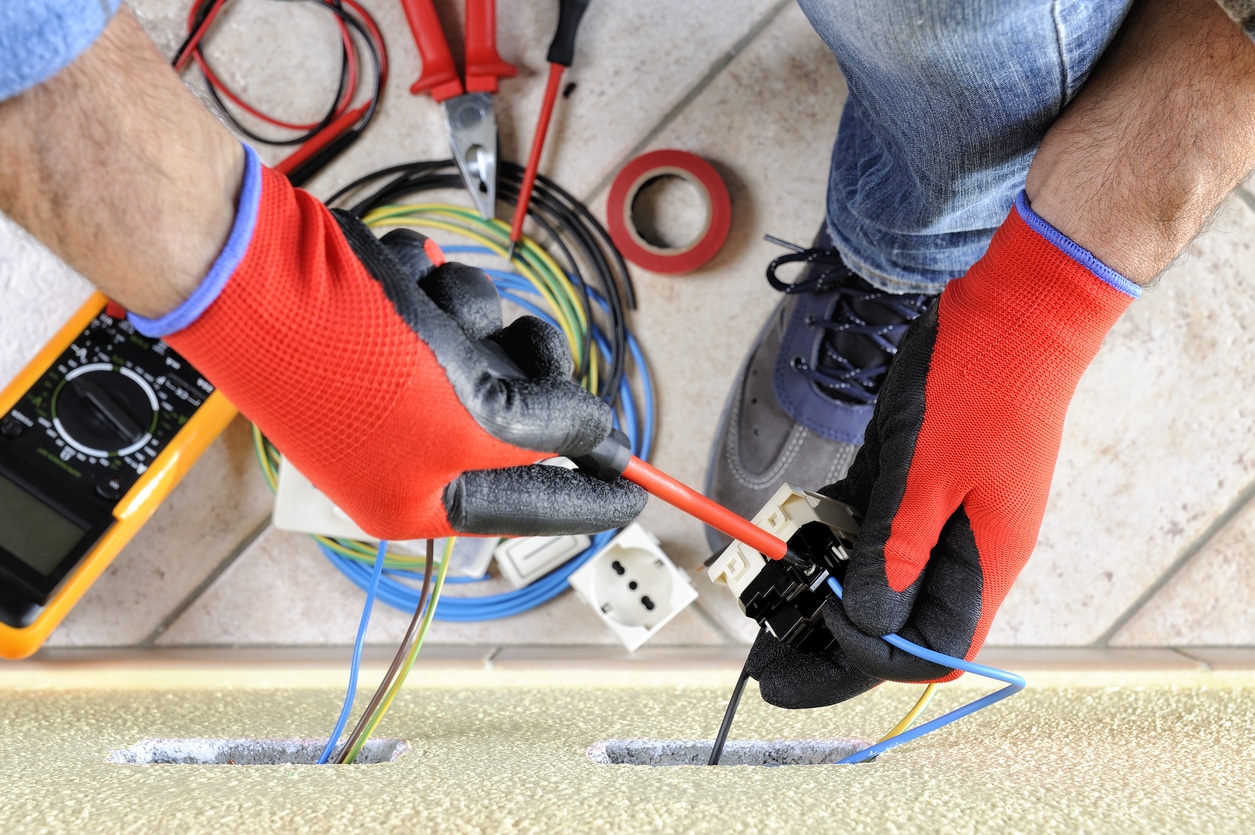
What Are Electrical Safety Checks?
Electrical safety checks are the answer to that concern. These checks are like a doctor’s visit for your home’s electrical wiring, outlets, and other components, ensuring everything works as it should.
Electrical safety checks are especially important for older homes, where the wiring might be outdated or worn out, making these checks even more critical for preventing potential issues.
Understanding the Basics
At its core, an electrical safety check involves a thorough inspection by a qualified electrician. Here’s what you can expect during the process:
- Inspection of wiring: The electrician examines your home’s wiring to ensure it’s in good condition and meets current safety standards.
- Evaluation of outlets: All outlets are checked for proper function and grounding to prevent electrical shocks.
- Examination of electrical panels: The electrician will ensure your panels are up to code and working safely.
- Prevention of hazards: These checks proactively prevent potential dangers like electrical fires, shocks, or unexpected power outages.
If you’ve ever experienced flickering lights or a tripped circuit breaker, these are signs that something might be wrong with your electrical system, and it’s time for an electrical safety check.
Signs Your Older Home Needs an Electrical Safety Check
Older homes often show signs that they need an electrical safety check. These signs are your home’s way of telling you that something might be wrong and that it’s time to call in an expert.
Flickering Lights and Power Surges
One of the most common signs that your home needs an electrical checkup is flickering lights. If you’ve noticed that your lights dim or flicker, especially when you use certain appliances, it could mean that your electrical system is struggling to keep up with the demand.
Power surges are another warning sign that shouldn’t be ignored. These surges happen when too much electricity flows through your home’s wiring, which can damage your appliances and, in some cases, even start a fire. Addressing these issues early on can prevent serious damage and ensure your home remains safe.
Frequent Circuit Breaker Trips
This could indicate that your home’s electrical circuits are overloaded, meaning they can’t handle the amount of electricity being used.
Alternatively, frequent trips might suggest there’s a short circuit somewhere in your wiring, which can be dangerous. Either way, it’s a sign that you need a professional to take a closer look before a minor inconvenience turns into a major problem.
Outdated or Faulty Wiring
If your home is older, it might still have outdated wiring, like knob-and-tube or aluminum wiring, which were common in the past but are now known to be fire hazards. Even if your home doesn’t have these older types of wiring, any signs of frayed or damaged wires are a cause for concern.
Faulty wiring can lead to electrical shocks, fires, and other serious problems that put your home and family at risk. Regular electrical safety checks can help identify these issues early on, ensuring that your wiring is safe and up to date.
The Risks of Ignoring Electrical Safety Checks
Skipping electrical safety checks in an older home might seem like a way to save time and money, but it can lead to serious problems down the road. Understanding the risks of ignoring these checks can help you see why they’re so important.
Fire Hazards
One of the biggest risks of neglecting electrical safety checks is the potential for a fire. Faulty wiring, overloaded circuits, and other electrical issues can all lead to sparks that could start a devastating fire in your home.
In older homes, where the wiring might not be up to modern safety standards, this risk is even higher due to the age and condition of the materials.
Regular electrical safety checks help identify and fix these problems before they become dangerous, ensuring your home remains safe from fire hazards.
Electrical Shocks
Another significant risk of ignoring electrical safety checks is the potential for electrical shocks. If your wiring is damaged or outdated, it could expose you or your family to the danger of severe electrical shocks.
Even a minor shock can be harmful, but in some cases, it could be life-threatening, especially if it affects young children or the elderly.
By conducting regular electrical safety checks, you can ensure that your home’s electrical system is safe and protect everyone in your household from this serious risk.
Higher Energy Bills
Faulty wiring and inefficient electrical systems can cause your energy bills to skyrocket, as your system struggles to keep up with demand.
When your electrical system isn’t working correctly, it has to use more power to do the same job, leading to higher energy consumption and increased costs.
Regular electrical safety checks can help you identify and fix these issues, potentially lowering your monthly bills and saving you money in the long run.
Benefits of Regular Electrical Safety Checks
Regular electrical safety checks might seem like just another task on your home maintenance list, but they offer some significant benefits that make them well worth the effort. Whether it’s peace of mind, saving money, or boosting your home’s value, these checks are a smart investment.
Peace of Mind
One of the most valuable benefits of regular electrical safety checks is the peace of mind they provide. Knowing that your home’s electrical system is safe, up-to-date, and free of hazards can help you sleep better at night.
You won’t have to worry about potential dangers like electrical fires or shocks, which are common concerns in older homes. With these checks, any issues are identified and resolved promptly, allowing you to enjoy your home without anxiety about its electrical safety.
Preventing Costly Repairs
Catching electrical problems early through regular electrical safety checks can save you a significant amount of money in the long run. Here’s how:
- Identifying small issues early: Problems like frayed wires or overloaded circuits might seem minor but can lead to serious, costly damage if ignored.
- Preventing major repairs: Regular checks allow you to address issues before they escalate, helping to avoid the need for expensive emergency repairs.
- Protecting your home: By fixing these problems early, you can prevent damage to your home’s electrical system and ensure everything runs smoothly.
- Saving on long-term costs: Investing in regular checks now can save you from hefty repair bills in the future, making it a cost-effective choice.
Don’t wait until a small issue turns into a big problem—schedule your electrical safety check today and protect your home from costly repairs down the road.
Improving Home Value
If you’re thinking about selling your home, having a safe and up-to-date electrical system is a major selling point. Here’s why:
- Increased Buyer Confidence: Buyers are increasingly concerned about the safety and efficiency of a home’s electrical system. Knowing that your home has undergone regular electrical safety checks can give them peace of mind.
- Avoiding Deal-Breakers: In older homes, outdated wiring can be a significant deal-breaker. Addressing these issues through regular checks ensures that potential buyers won’t be deterred by safety concerns.
- Enhanced Market Value: Regular electrical safety checks ensure that your home is in top shape, potentially increasing its market value and making it more attractive to prospective buyers.
Investing in these checks can make a big difference when it comes time to sell.
What to Expect During an Electrical Safety Check
Inspection of Wiring and Outlets
One of the first things an electrician will do during an electrical safety check is inspect your home’s wiring and outlets.
This involves carefully examining the wiring for any signs of wear and tear, such as frayed wires, loose connections, or outdated materials, all of which can pose serious safety risks.
The electrician will also test your outlets to ensure they are functioning correctly and that they are properly grounded to prevent electrical shocks. This step is crucial in identifying hidden dangers that could lead to fires or other hazards if not addressed.
Checking the Circuit Breaker Panel
Your circuit breaker panel is often considered the heart of your home’s electrical system, and it’s critical to its overall health.
During the electrical safety check, the electrician will closely inspect the circuit breaker panel to ensure that it’s not overloaded and that all breakers are functioning as they should.
This inspection may also include checking for signs of corrosion, damage, or wear that could indicate a potential problem. Ensuring that your circuit breaker panel is in good condition is key to preventing electrical failures and maintaining a safe home environment.
Testing GFCI Outlets
Ground Fault Circuit Interrupter (GFCI) outlets are a vital safety feature in areas of your home where water is present, such as kitchens and bathrooms. During an electrical safety check, the electrician will test these outlets to ensure they are working properly.
GFCI outlets are designed to cut off power if they detect an imbalance, which helps prevent electrical shocks.
If any of your GFCI outlets are not functioning correctly, the electrician will recommend replacing them to maintain the safety of your home. This step is crucial for protecting you and your family from potential electrical hazards.
Professional vs. DIY: Why You Need an Expert
When it comes to electrical safety checks, you might be tempted to take a DIY approach. However, there are some very good reasons why it’s better to leave this job to the professionals.
The Expertise Required
Electrical systems are complex, and it takes a lot of training and experience to fully understand them. Professional electricians have the knowledge and skills needed to spot problems that an untrained eye might miss.
They know how to safely handle electrical components and can ensure that your system meets all local codes and regulations.
Trying to do it yourself might save you money upfront, but it could lead to costly mistakes or even dangerous situations down the line.
The Role of Local Electricians
Hiring a local electrician also means you’re getting someone who understands the specific needs of homes in your area.
For example, if you live in Lancaster, PA, or nearby areas like York or Harrisburg, a local electrician will be familiar with the types of wiring and electrical issues common in homes of your era.
They’ll also know the local building codes and can make sure your home meets all the necessary safety standards.

How Often Should You Conduct Electrical Safety Checks?
Knowing how often to schedule electrical safety checks can help you keep your home safe and running smoothly. For older homes, regular checks are especially important to catch potential issues before they become major problems.
Recommended Frequency for Older Homes
For homes that are more than 30 years old, it’s generally recommended to have an electrical safety check every 3 to 5 years.
This time frame ensures that any wear and tear on your electrical system is caught early, helping to prevent accidents and costly repairs.
If your home is much older or you’ve noticed any issues like flickering lights or frequent breaker trips, you might want to schedule checks more often.
Specific Considerations for Lancaster, PA
If you live in areas like Lancaster, PA, or nearby cities like York or Harrisburg, there are specific considerations to keep in mind. Homes in these regions might have unique challenges due to the age and style of construction.
Local weather conditions, such as heavy snowfall or humidity, can also impact your electrical system. A local electrician who understands these factors can provide the best advice on how often you should have your home’s electrical system checked to ensure it stays in top condition.
Protect Your Home with Expert Electrical Safety Checks
Is your home’s electrical system due for a check-up? Don’t wait until it’s too late! At Mister Sparky of Lancaster, we’re dedicated to ensuring the safety and reliability of electrical systems in homes across Lancaster, York, and Harrisburg, PA.
Our skilled and experienced electricians conduct thorough inspections, identifying and addressing potential issues before they become costly and dangerous problems.
Regular electrical safety checks are essential, especially for older homes, to prevent hazards like fires and shocks. Schedule your electrical safety check today with Mister Sparky of Lancaster and enjoy peace of mind knowing your home is safe and secure!
FAQs
What are the common issues found in older homes?
Older homes often have outdated wiring, such as knob-and-tube or aluminum wiring, which can be fire hazards. Other common issues include frayed wires, overloaded circuits, and a lack of GFCI outlets, which are essential for preventing electrical shocks.
How long does an electrical safety check take?
An electrical safety check typically takes a couple of hours, depending on the size of your home and the complexity of your electrical system. The electrician will need time to inspect your wiring, outlets, circuit breaker panel, and other key components to ensure everything is safe and up to code.
What should I do if I suspect an issue before the next check?
If you notice any signs of electrical problems, such as flickering lights, burning smells, or frequent breaker trips, it’s important to call a professional electrician right away. Don’t wait for your next scheduled check—addressing issues promptly can prevent more significant problems down the line.
Can I perform an electrical safety check myself?
While there are some basic checks you can do yourself, like testing outlets with a plug-in tester, it’s best to leave a full electrical safety check to a professional. Electricians have the tools and expertise to identify and fix issues that might not be obvious to an untrained eye.
How do I choose the right electrician for an electrical safety check?
When choosing an electrician for your safety check, look for someone who is licensed, insured, and has good reviews from other homeowners in your area. It’s also helpful to hire a local electrician who understands the specific needs and common issues of homes in your region.






